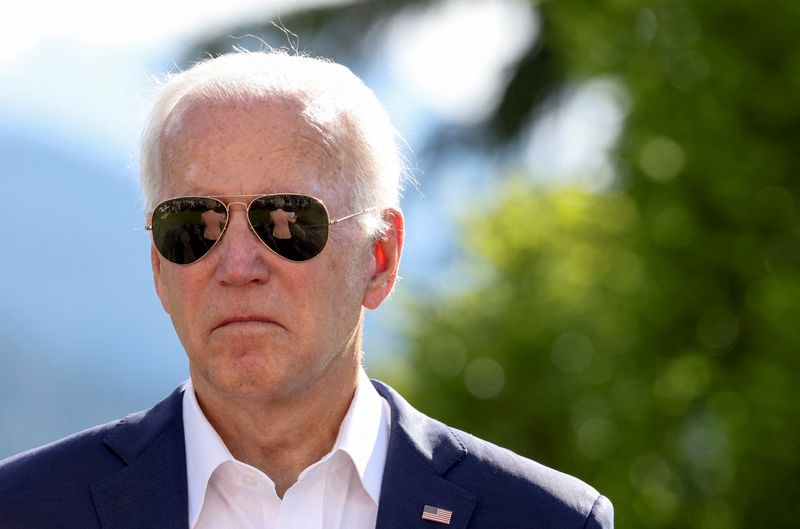Who is Kevin Hassett? Wolfe looks at the Trump ally tipped to become Fed Chair.
By Nandita Bose and Andrea Shalal
WASHINGTON (Reuters) -U.S. President Joe Biden, facing congressional resistance to his "care economy" proposals, on Tuesday signed an executive order aimed at advancing free preschool and expanding affordable care for children, older Americans and those with disabilities.
Biden signed the order, which includes over 50 specific actions, in the White House Rose Garden, flanked by family caregivers, people with disabilities, older adults and early childhood and long-term care workers.
The order instructs nearly every federal agency to take actions to increase Americans' access to high-quality childcare and long-term care, and to better support caregivers and workers, even as Biden continues to push for $750 billion in funding for those areas over 10 years included in his 2024 budget proposal to Congress.
"The executive order doesn't require any new spending. It's about making sure that taxpayers get the best value for the investments they've already made," Biden said.
“The actions we're taking today are about dignity, security and peace of mind for working families and caregivers all across the country and they're good for the economy as well," said Biden, who shared his own struggles with caregiving as a single father after the death of his first wife.
The White House is betting child- and elder-care programs, which are very popular with the public despite opposition by Republican lawmakers and some Democrats, can boost Biden's approval ratings as he nears an announcement of his candidacy for the 2024 presidential race.
Ai-jen Poo, president of the National Domestic Workers Alliance and Jenn Stowe, executive director of the National Domestic Workers Alliances, called the order "a major step toward modernizing" the U.S. care system.
"As the care workforce crisis intensifies across the country and families continue to struggle to afford care, this set of executive actions marks the all-in commitment we need to make sure care jobs are good jobs and that Americans can access care for generations to come," they said in a joint statement.
The executive order was also welcomed by AARP, a major lobbying group for older Americans, and the AFL-CIO, the largest U.S. labor organization.
Biden is directing nearly every federal agency to identify grant programs that can pay for childcare and long-term care benefits for workers on federal projects, and to consider requiring companies applying for federal job-creation funds to expand access to care for their workers.
The Commerce Department pioneered this approach last month when it required companies seeking major funding under its $52 billion U.S. semiconductor manufacturing and research program to show how they will help workers access affordable childcare.
Other measures would improve access to home-based care for veterans, boost pay for early childhood educators, improve the quality of jobs caring for the elderly and those with disabilities, and promote the right of care workers to unionize.
Heather Boushey of the White House Council of Economic Advisers (CEA) told reporters that childcare and eldercare shortages and soaring costs limited the ability of many women to work, constraining labor supply and dampening economic growth.
She cited a recent Boston Consulting Group estimate that U.S. economic output could drop by $290 billion a year from 2030 if critical care shortages and affordability were not addressed.
Senior administration officials declined to estimate the dollar value of Biden's actions and said the administration wants to implement the changes quickly.
